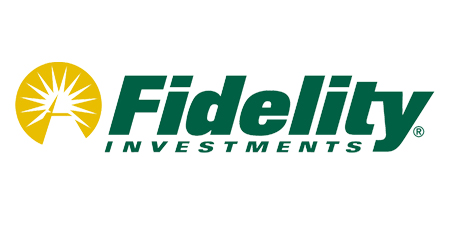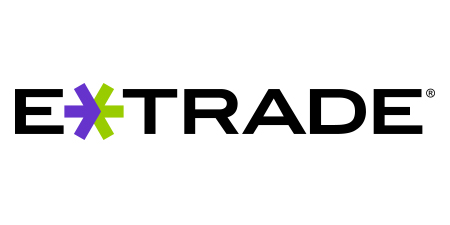FAQs
Why did you create ACVF?
We want to serve long-time conservative investors. ACVF was launched by professional investors who saw a need in the market: clients who align with conservative values often found themselves investing in companies whose actions or advocacy ran counter to their beliefs. ACVF offers an investment solution that seeks to reflect those values while maintaining a disciplined, performance-aware approach to large-cap equity exposure.
How do you decide which companies to boycott?
We avoid companies that promote liberal causes or alienate conservative customers and employees. Our process is qualitative and evaluates a company’s long-term reputation, business practices, and how it compares to peers in its industry.
Will your approach sacrifice performance?
Performance is core to our investment philosophy. ACVF maintains style, sector, and risk exposures aligned with large-cap benchmarks while avoiding the most misaligned companies. It’s designed as a viable, risk-managed core allocation.
Why aren’t you boycotting “XYZ Corp.?” their woke / liberal?
Our focus is on the worst offenders. Just because a company isn’t perfect doesn’t mean it meets our threshold for boycott. What we do own is part of a diversified strategy, not an endorsement.
How does boycotting their stock hurt the company?
We believe capital is the most powerful form of advocacy. Companies care about stock performance. When enough investors divest, it impacts executive compensation and gets leadership’s attention. Capital flows shape corporate behavior. Just as ESG investing has shifted corporate America leftward, coordinated conservative capital can influence companies to depoliticize and refocus on shareholder value.
Where does ACVF fit In my portfolio?
ACVF is designed as a core U.S. large-cap allocation. It serves as a values-aligned replacement for traditional index-based ETFs or mutual funds, maintaining diversification and benchmark awareness.
What is your approach to shareholder engagement?
Beyond refusing to invest in the companies most at risk to the “woke/liberal agenda” and what we believe is a wasteful misallocation of investors’ capital.
ACVF’s shareholder proposals seek to target corporate initiatives that appear to prioritize activities beyond the interests of the shareholders. Our goal is to limit the financial impact of political speech by executives as well as roll back corporate initiatives that push environmental, social, and governance (ESG) policies.
Where can I buy ACVF?
ACVF is available across most self-directed platforms, independent RIA custodians, and many broker-dealers. Availability continues to expand with platform adoption.
Research Popular Brokers:
Ridgeline Research LLC, is not affiliated with these financial services firms. Their listing should not be viewed as a recommendation or endorsement. By clicking the buttons above you are leaving the American Conservative Values ETFs website and going to a third party site. Ridgeline Research LLC is not responsible for the content on third party sites.
How can I get the best trade execution?
We encourage using limit orders to optimize execution and minimize slippage. For block trades we suggest contacting your firm’s trading desk.
How can I share my insights with the management team?
How often does ACVF update its list of boycotted companies?
We update our list daily to reflect the most current information and actions taken by companies.
What criteria do you use to determine if a company can be reconsidered for investment?
ACVF is actively managed using a qualitative approach. We welcome deeper discussions on our process. Please contact us to schedule a call.
Does ACVF engage with companies to encourage changes, or is the strategy strictly exclusionary?
While exclusion is the key part of our strategy, we also believe in the power of shareholder advocacy. We actively engage with the companies we do invest in to push back against corporate initiatives that prioritize political agendas over shareholder value.
Does ACVF use shareholder activism as part of its investment strategy?
Yes. We believe shareholder advocacy can support our thesis that politically motivated corporate behavior may reduce long-term performance. Our proposals aim to limit financial impact from executive political speech and to challenge ESG-related initiatives that conflict with conservative values.
How does ACVF’s sector allocation compare to traditional S&P 500 index funds?
We manage sector and industry exposures to closely align with the S&P 500, despite our exclusions. For example, we remain underweight in Communication Services due to the high number of boycotted companies in that sector.
What industries are most commonly represented in ACVF’s holdings?
Our holdings span multiple sectors similar to the S&P 500. However, representation may vary depending on the number of companies excluded in each industry.
How does ACVF address concerns about reduced diversification?
We actively manage portfolio risk characteristics to maintain diversification, even while implementing our exclusion criteria. Our goal is to replicate the risk profile of the S&P 500 as closely as possible.
Does ACVF offer any other ETFs or investment options?
We have additional ETFs currently in development and will consider separately managed accounts (SMAs) for qualified investors.
Can financial advisors include ACVF in client portfolios or retirement accounts?
Yes. ACVF is available on most self-directed brokerage platforms, independent RIA platforms, and regional broker-dealers. Our distribution continues to expand.
How does ACVF evaluate the financial impact of its boycotts on targeted companies?
There’s growing evidence that political boycotts, particularly ESG-related, have influenced corporate behavior. We believe politically conservative investing can drive similar influence by moving corporate America back toward neutrality and shareholder value.
What is ACVF’s stance on ESG (Environmental, Social, and Governance) investing?
We believe ESG investing reflects a particular set of values that conflict with our own. The rapid success of ESG products showed the power of value-based investing. ACVF provides an alternative aligned with politically conservative values.
Is there a minimum investment required?
There is no minimum investment beyond the purchase of a single share in a brokerage account.
What are the tax implications of investing in ACVF?
Like most ETFs, ACVF is designed to be tax-efficient and historically has had no capital gains distributions.





